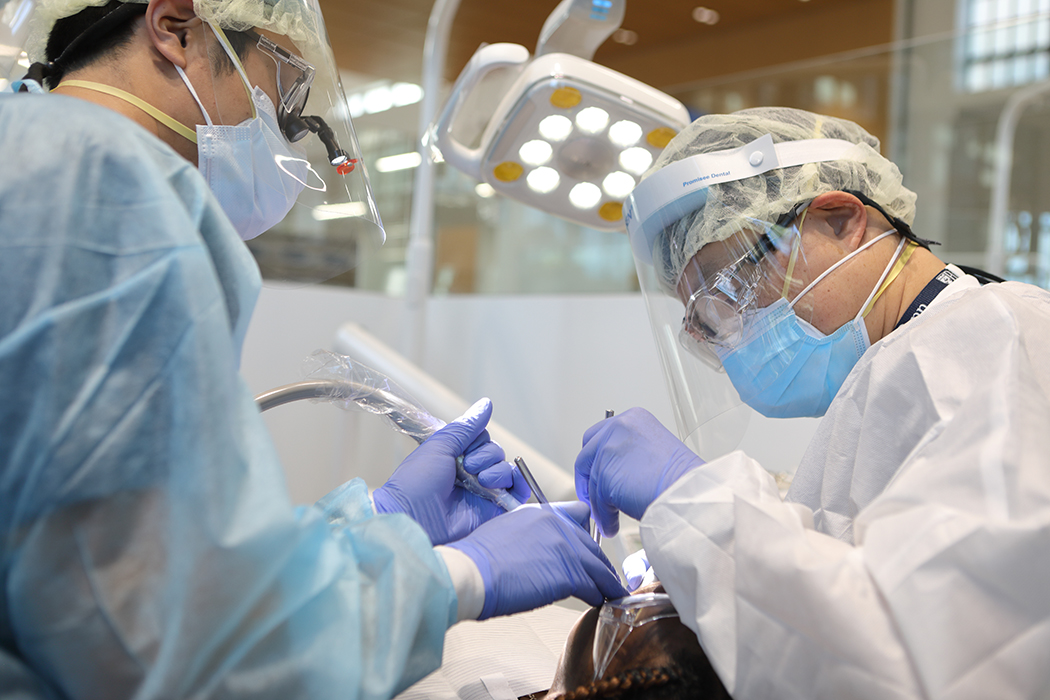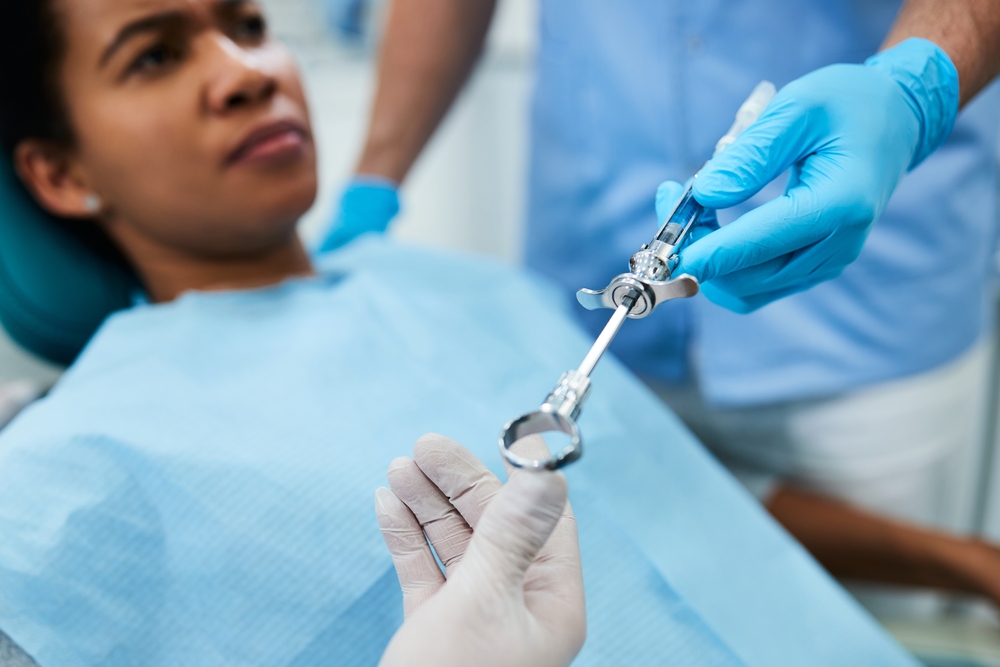Resource Library
Start Reading

 Oral surgery may sound serious, but did you know that it’s routinely used to treat a variety of conditions affecting the appearance or function of your teeth, gums, mouth, and jaws? And, dental implants and teeth extraction (including wisdom teeth) are considered oral surgery. In fact, they’re the two most commonly performed types.
Oral surgery may sound serious, but did you know that it’s routinely used to treat a variety of conditions affecting the appearance or function of your teeth, gums, mouth, and jaws? And, dental implants and teeth extraction (including wisdom teeth) are considered oral surgery. In fact, they’re the two most commonly performed types.
If your dentist recommends an oral surgery procedure, you’ll probably want to know more about the kinds of conditions it can be used to treat. Penn Dental Family Practice explains what you need to know if your dentist talks to you about it.
If you’re visiting the dentist because you have a problem, such as pain in your tooth or jaw, or your dentist notices something during an exam, oral surgery may be recommended as a treatment plan. What are the seven common reasons it could be recommended? (The first two reasons bear repeating.)

If you experience any of these seven issues and your dentist recommends one of these types of oral surgery, they’ll refer you to an oral surgeon.
 An oral surgeon, also sometimes referred to as a maxillofacial surgeon, differs from your dentist because they undergo additional years of training alongside medical residents in internal medicine, general surgery, anesthesiology, otolaryngology, plastic surgery, and emergency medicine. They have a unique understanding of the appearance and function of the face, including the teeth, bones, skin, muscles, and tissue.
An oral surgeon, also sometimes referred to as a maxillofacial surgeon, differs from your dentist because they undergo additional years of training alongside medical residents in internal medicine, general surgery, anesthesiology, otolaryngology, plastic surgery, and emergency medicine. They have a unique understanding of the appearance and function of the face, including the teeth, bones, skin, muscles, and tissue.
As such, the oral surgeons at Penn Dental Family Practice don’t just have licenses in dentistry, but they are also licensed medical doctors. This means they have gone through eight or more years of additional training. If your dentist refers you to one of our oral surgeons, you can trust that they bring the latest insights and knowledge to your treatment and care, and they have joined us from the top programs in the country.
You can find out more about the Penn Dental Family Practice Oral Surgery Advantage by downloading this free flyer.
Whether it’s for an extraction or a more serious reason, choosing the right oral surgeon is important for your care and peace of mind. At Penn Dental Family Practice, you get the convenience of staying within the practice you trust. We collaborate across all dental specialties and coordinate your care seamlessly. And you get the benefit of care from dentists who are among the most respected in their fields.
To make an appointment, call us today at (215) 898-7337 or complete this form.